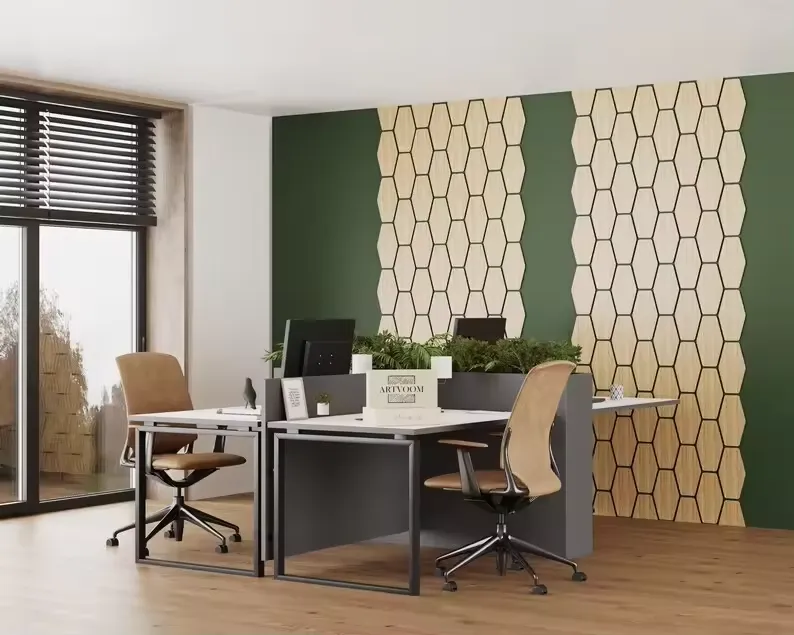The Soundproofing Benefits of Gypsum Board Partitions
In modern construction and interior design, soundproofing is becoming increasingly important. Whether in commercial spaces, residential units, or office environments, the need for privacy and reduced noise pollution is essential for creating comfortable living and working conditions. One of the most effective and commonly used methods for sound isolation is the implementation of gypsum board partitions.
Understanding Gypsum Board Partitions
Gypsum board, also known as drywall or plasterboard, is a construction material made from gypsum plaster sandwiched between two sheets of heavy paper. This material is widely favored for its fire-resistant properties, ease of installation, and versatility. Gypsum board partitions are non-structural walls that can be easily erected to divide spaces within a building. However, what many might overlook is their significant soundproofing capabilities.
Soundproofing Mechanism of Gypsum Board Partitions
The soundproofing ability of gypsum board partitions primarily stems from their density and mass. Sound travels through air via vibrations, and these vibrations can be absorbed, dampened, or blocked by solid materials. Gypsum board partitions, having considerable weight, are effective at reducing the transmission of sound waves. Additionally, the composition of gypsum itself, which is a mineral-based substance, contributes to its sound-dampening properties.
When installed correctly, a gypsum board partition can create a barrier that minimizes both airborne sound (like conversations or music) and impact noise (such as footsteps or furniture movement). The acoustic performance can be further enhanced with the use of insulation materials placed within the framing of the partition. Common insulation options include fiberglass batts or mineral wool, which help absorb sound energy, further improving the overall soundproofing capability of the partition.
Design Considerations for Optimal Soundproofing
To achieve the best soundproofing results from gypsum board partitions, several design considerations should be kept in mind
gypsum board partition soundproof

1. Thickness of Gypsum Board Using thicker gypsum boards can enhance sound isolation. Standard boards are usually 1/2 inch thick, but opting for 5/8 inch thick boards can provide improved soundproofing.
2. Double Layering Installing a second layer of gypsum board can significantly enhance sound attenuation. This additional layer not only increases the mass of the partition but also helps in reducing sound flanking paths.
3. Sealing Gaps Properly sealing gaps around the edges of the partition is crucial. Sound can easily travel through small openings, so applying acoustical caulk at the joints can create a more airtight seal.
4. Decoupling Techniques Utilizing resilient channels or sound clips can further decouple the drywall from the framing system. This isolation reduces the transmission of vibrations through the structure, greatly enhancing sound control.
Applications of Soundproof Gypsum Board Partitions
The applications of soundproof gypsum board partitions are vast. In residential settings, these partitions can effectively separate bedrooms from living areas, creating peaceful environments for rest. In commercial spaces, they are ideal for the creation of private offices, meeting rooms, and conference areas, ensuring that conversations and presentations remain confidential.
Moreover, in sectors such as healthcare and education, where silence and focus are paramount, soundproof partitions made from gypsum boards help maintain a quiet atmosphere conducive to healing and learning.
Conclusion
As urban settings become increasingly dense and noise pollution intensifies, the demand for effective soundproofing solutions has never been higher. Gypsum board partitions not only offer a practical and versatile way to divide spaces, but they also provide substantial soundproofing benefits. By understanding the properties of gypsum board and implementing soundproofing techniques, architects and builders can create serene environments that cater to the needs of occupants and promote well-being in various settings. As we move forward, incorporating these innovations into building designs will become indispensable in fostering peaceful and productive spaces.
-
Snuffle Ball Benefits for Indoor DogsNewsAug.22,2025
-
Building Acoustic Panels for Classroom NoiseNewsAug.22,2025
-
Installation Best Practices for Acoustic Art PanelsNewsAug.22,2025
-
Health Benefits from Noise-Reducing Hex Acoustic PanelsNewsAug.22,2025
-
Creative Shapes Using Felt Panels Acoustic DesignsNewsAug.22,2025
-
Polyester Acoustic Panels in Modern Office PodsNewsAug.22,2025
